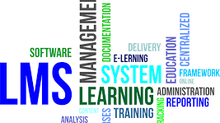Using New Authoring tools
- Dylan Hedges
- Dec 4, 2018
- 2 min read
As an eLearning developer who does work for a wide variety of clients, you can imagine that I am often forced to use a variety of authoring tools, despite Storyline 360 being the industry standard. While I definitely use Storyline 360 the most authoring tools such as Adobe Captivate and Lectora are a close 2nd and 3rd.
Transitioning to a new elearning authoring tool for the first time is never a smooth process but here are a 3 simple tips that have allowed me to effectively jump into a new tool, and deliver on client expectations.
Using tooltips
This is a small item but it is usually something I do whenever I first sit down with a new tool. I find this explorative exercise helps with familiarizing yourself with the User Interface, but also from a software development perspective. Tools available on any sort of palette are generally going to be your bread and butter, and you usually only need to dig deeper into the software for more complex/obscure actions. This is logic behind UI design and holds true for pretty much any major software tool.
Read the documentation
This one is actually quite obvious but it is truly surprising how many people ignore the Help options that are integrated into the software. These tools explain exactly what these authoring tools are capable of and how to utilize them. Additionally, they also feature handy search fields which in most cases allow you to quickly find what you are looking for. However, if you still can’t bring yourself to read the documentation there is another option you can explore.
Utilize developer forums
Lastly developer forums are a wonderful place to find solutions, and even pose your own questions. (yes this involves making an account) It is well worth the time to setup and become familiar with these forums. They are full of professional who are friendly and supportive, and it is surprising how quickly people reply.
Hopefully these 3 simple tips will help you acclimate to any authoring tools transitions, and allow you to develop great elearning modules.
If you would like to learn more about gamification, graphic design, or eLearning development, please visit www.pathwaystrainingandelearning.com.































Comments